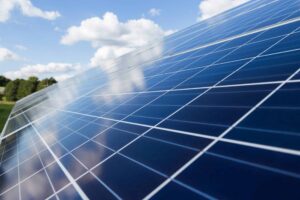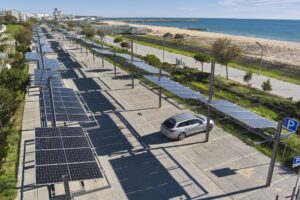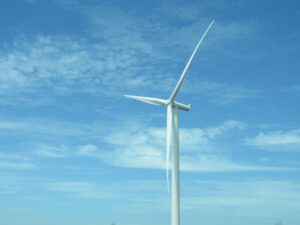By COLIN REID features@algarveresident.com
Colin Reid is the technical director at the Enova Group and is a chartered engineer specialising in renewable and sustainable energy systems. He has over 20 years experience in the industry and lives with his wife and three children near Almancil.
Heat pumps are very efficient heating appliances that use a refrigeration system in reverse to heat water or air for residential or commercial heating systems.
There are various types available in the market place but the main ones can be summarised as follows:
• Refrigeration type with indoor and outdoor units (splits, multi splits and VRV systems)
• Air water type which heat water mainly for under floor heating systems
• Geothermal type which heat water mainly for under floor heating systems
The first is well proven and very popular in the Algarve and works very well for both heating and cooling. The newer machines are inverter driven (speed controlled) and therefore energy efficient. The only drawback is that heating is done through air conditioning units inside producing warm air that can create draughts and dryness. Also the heat does not warm up the building fabric and thus when the units are switched off, the room temperature will drop fairly rapidly.
The remaining types absorb heat and transfer this heat to water that can then be used for heating normally via an under floor heating system. The air water heat pump uses the surrounding air to extract the heat whereas the geothermal heat pump uses water tubes in the ground to extract the heat.
Geothermal heat pumps are becoming more and more popular in Northern Europe because the ground temperature during winter is higher and more stable than the air temperature so the heat pump tends to be more efficient.
However in the Algarve, the climate is quite different; even in winter time, the air temperature can be higher than the ground temperature. Therefore, the case for geothermal heat pumps is not as strong as in places like the UK or other parts of Northern Europe.
There are also other disadvantages with geothermal heat pumps:
• They are more costly
to install
• They are more disruptive
to install
• As the heat is withdrawn from the ground, so the ground cools and so the efficiency of the heat pump diminishes. For this reason, geothermal heat pumps should not be run continuously to allow the ground to recover
One of the main advantages of geothermal heat pumps is that the machine can be installed inside and therefore cannot be seen or heard outside.
As mentioned above, heat pumps are normally used with under floor heating systems. The reason for this is that they operate at lower temperatures (around 45 degrees centigrade) whereas radiators tend to operate at higher temperatures (around 75 degrees centigrade). In most cases therefore, heat pumps are not normally used with radiators unless the radiators are over sized, in which case they can run at a lower temperature.
Solar systems also operate well with heat pumps as both work efficiently at water temperatures of around 45 degrees. The solar system can be the primary source of heat with the heat pump as back up (renewable energy backed up by energy efficient equipment).
The other great advantage of heat pumps is that they can be used for cooling in reverse mode. The refrigeration type use the indoor units to blow cool air. The water type heat pumps chill the water which can then be pumped through the under floor system or through water type air conditioning units for cooling. Once again, it is important to seek professional advice before choosing your heat pump system as there are many options available.
For more information, please call 282 960 969 or email


















